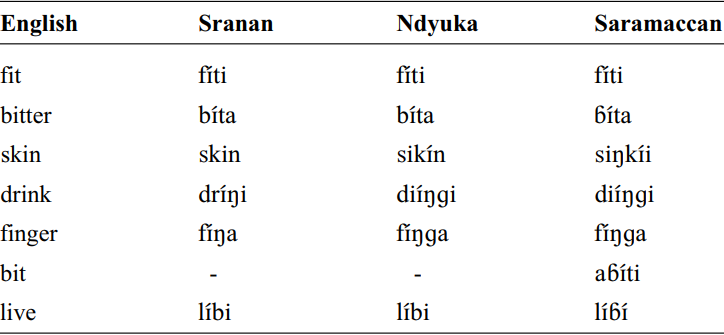

Grammar


Tenses


Present

Present Simple

Present Continuous

Present Perfect

Present Perfect Continuous


Past

Past Continuous

Past Perfect

Past Perfect Continuous

Past Simple


Future

Future Simple

Future Continuous

Future Perfect

Future Perfect Continuous

Passive and Active


Parts Of Speech


Nouns

Countable and uncountable nouns

Verbal nouns

Singular and Plural nouns

Proper nouns

Nouns gender

Nouns definition

Concrete nouns

Abstract nouns

Common nouns

Collective nouns

Definition Of Nouns


Verbs

Stative and dynamic verbs

Finite and nonfinite verbs

To be verbs

Transitive and intransitive verbs

Auxiliary verbs

Modal verbs

Regular and irregular verbs

Action verbs


Adverbs

Relative adverbs

Interrogative adverbs

Adverbs of time

Adverbs of place

Adverbs of reason

Adverbs of quantity

Adverbs of manner

Adverbs of frequency

Adverbs of affirmation


Adjectives

Quantitative adjective

Proper adjective

Possessive adjective

Numeral adjective

Interrogative adjective

Distributive adjective

Descriptive adjective

Demonstrative adjective


Pronouns

Subject pronoun

Relative pronoun

Reflexive pronoun

Reciprocal pronoun

Possessive pronoun

Personal pronoun

Interrogative pronoun

Indefinite pronoun

Emphatic pronoun

Distributive pronoun

Demonstrative pronoun


Pre Position


Preposition by function

Time preposition

Reason preposition

Possession preposition

Place preposition

Phrases preposition

Origin preposition

Measure preposition

Direction preposition

Contrast preposition

Agent preposition


Preposition by construction

Simple preposition

Phrase preposition

Double preposition

Compound preposition


Conjunctions

Subordinating conjunction

Correlative conjunction

Coordinating conjunction

Conjunctive adverbs


Interjections

Express calling interjection


Grammar Rules

Preference

Requests and offers

wishes

Be used to

Some and any

Could have done

Describing people

Giving advices

Possession

Comparative and superlative

Giving Reason

Making Suggestions

Apologizing

Forming questions

Since and for

Directions

Obligation

Adverbials

invitation

Articles

Imaginary condition

Zero conditional

First conditional

Second conditional

Third conditional

Reported speech


Linguistics

Phonetics

Phonology


Semantics


Pragmatics

Linguistics fields

Syntax

Morphology

Semantics

pragmatics

History

Writing

Grammar

Phonetics and Phonology

Semiotics


Reading Comprehension

Elementary

Intermediate

Advanced


Teaching Methods

Teaching Strategies
Vowel systems KIT
المؤلف:
Norval Smith and Vinije Haabo
المصدر:
A Handbook Of Varieties Of English Phonology
الجزء والصفحة:
530-31
2024-04-15
1022
Vowel systems KIT
The KIT set of words with Middle English (henceforth ME)  are represented in Suriname creoles by words derived from Early Modern English ship, bit, dig, skin, drink, dinner, sieve, busy, and so on. In the rest of this article we will simply describe these for convenience as English words, whether the meaning has undergone a change or not. The normal realization of these words in the Suriname creoles is [i], a short high front vowel.
are represented in Suriname creoles by words derived from Early Modern English ship, bit, dig, skin, drink, dinner, sieve, busy, and so on. In the rest of this article we will simply describe these for convenience as English words, whether the meaning has undergone a change or not. The normal realization of these words in the Suriname creoles is [i], a short high front vowel.
Table 1. The KIT set

A number of words that belong to this incidence set in RP and AmE have different realizations in the Suriname creoles.
Table 2. KIT words with deviant vowels

Whip has a form in Sranan and Ndyuka concomitant with a derivation from a form [wɪp] . Saramaccan, however, might be based on a form [hwɪp] , to judge by the optional /h/. The /u/ vowel appears in a number of other forms where it must also stand for earlier /wi/.
If has a lower vowel in other Caribbean creoles as well. Compare Krio /εf/, Jamaican /ef, efn/, Miskito Coast Creole /ef/ etc.
Mix must derive from an unrecorded EModE form /*mΛks/. In ME we do have a rounding of  after /w/, and in isolated words after /b/ as well as before /m/ (Dobson 1957). A possible parallel for this form is found in Cameroonian Pidgin
after /w/, and in isolated words after /b/ as well as before /m/ (Dobson 1957). A possible parallel for this form is found in Cameroonian Pidgin  .
.
 الاكثر قراءة في Phonology
الاكثر قراءة في Phonology
 اخر الاخبار
اخر الاخبار
اخبار العتبة العباسية المقدسة

الآخبار الصحية















 (نوافذ).. إصدار أدبي يوثق القصص الفائزة في مسابقة الإمام العسكري (عليه السلام)
(نوافذ).. إصدار أدبي يوثق القصص الفائزة في مسابقة الإمام العسكري (عليه السلام) قسم الشؤون الفكرية يصدر مجموعة قصصية بعنوان (قلوب بلا مأوى)
قسم الشؤون الفكرية يصدر مجموعة قصصية بعنوان (قلوب بلا مأوى) قسم الشؤون الفكرية يصدر مجموعة قصصية بعنوان (قلوب بلا مأوى)
قسم الشؤون الفكرية يصدر مجموعة قصصية بعنوان (قلوب بلا مأوى)


















